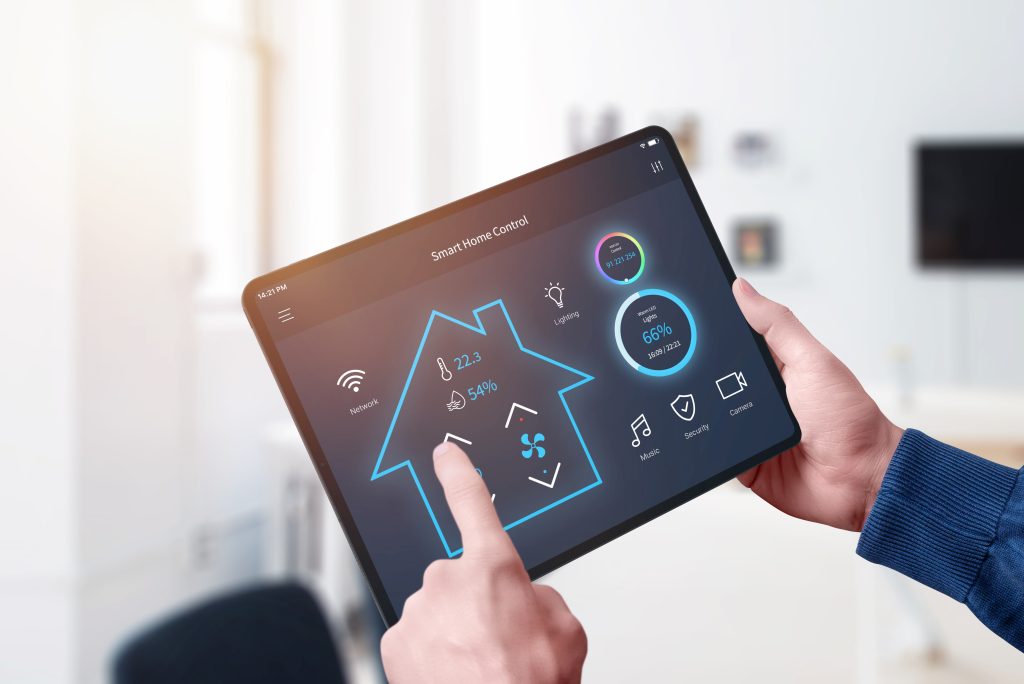Home automation has transformed how we interact with our living spaces. Integrating technology into household management, especially in climate control, has brought remarkable convenience and efficiency.
Effective climate control is crucial for maintaining comfort while being energy-efficient. The latest technologies optimize indoor temperatures and contribute significantly to reducing energy consumption and costs.
Smart Thermostats
These are advanced devices that improve temperature control in homes. Equipped with learning algorithms, WiFi connectivity, and geofencing (adjusting settings based on location) capabilities, smart thermostats adapt to your daily routines, optimizing your home’s temperature settings for both comfort and energy efficiency.
Here are the benefits of using these devices for climate control:
- Learning Capabilities: They learn from your habits, automatically adjusting temperatures to suit your schedule.
- Remote Control: These devices manage your home’s temperature from anywhere using a smartphone app, offering convenience and control.
- Energy Usage Reports: They provide detailed insights into your heating and cooling patterns, helping you optimize energy usage and reduce costs.
These versatile and user-friendly devices are ideal for homeowners looking to integrate smart technology into their existing HVAC systems without needing a comprehensive overhaul.
Automated HVAC Systems
These systems are integrated solutions that manage the entire climate of a home. Automated HVAC systems include heating, ventilation, and air conditioning, working in unison to ensure optimal environmental conditions across different zones of the house.
Their advantages include:
- Zone-Specific Climate Control: The systems offer zone-specific climate control, allowing you to tailor the temperature and humidity in different areas of your home for personalized comfort.
- Integrated Air Quality Monitoring: By integrating air quality monitoring, these systems continuously adjust airflow to reduce allergens and pollutants, thus ensuring a healthier living environment.
- Overall Energy Efficiency: They optimize the operation of heating, cooling, and ventilation for energy savings on a larger scale.
Automated HVAC systems are preferred by those seeking a climate management solution that integrates various aspects of heating and cooling into a cohesive system.
Voice-Activated Climate Control
By leveraging voice recognition technology, voice-activated climate control systems offer an intuitive way to manage home temperature settings. These systems make climate control more accessible.
Here are the benefits of these innovative systems:
- Hands-Free Operation: Users can adjust temperatures and settings without lifting a finger, providing ease of use, especially when hands are full or mobility is limited.
- Integration With Virtual Assistants: These systems seamlessly integrate with your preferred virtual assistant, allowing for a cohesive smart home experience.
- Customizable Voice Commands: Users can set up personalized voice commands for different climate settings, making the system adapt to individual preferences.
- Real-Time Adjustments: These systems can make immediate changes to the home environment in response to sudden shifts in weather or personal comfort needs.
Voice-activated climate control systems represent a significant advancement in home automation, offering a blend of convenience, accessibility, and customization. More than merely a technological novelty, they’re a practical tool that makes climate control effortless and more responsive to the needs of all individuals in the home.
Remote Monitoring And Control
Remote monitoring and control technologies allow homeowners to manage their climate settings from anywhere, using internet connectivity. This innovation in home automation provides significant control over home environments.
These technologies enhance comfort and efficiency in several ways:
- Remote Adjustment Capability: Homeowners can adjust their home’s climate remotely, ensuring that it’s comfortable upon their arrival.
- Efficient Energy Usage Monitoring: The technology allows for the monitoring and analysis of energy consumption. This can contribute to improved efficiency and cost savings.
- Automated Climate Scheduling: Users can automate heating and cooling schedules to align with their daily routines, guaranteeing optimal comfort at all times.
- Timely Alerts And Notifications: It provides real-time updates on home climate conditions. With this, you can make timely adjustments to maintain desired settings.
These benefits of remote monitoring and control technologies highlight their role in enhancing home climate management.
Integration With Home Automation Systems
Integration of climate control with broader home automation systems is a noteworthy advancement in smart home technology. This integration enhances the overall functionality and efficiency of the home.
The advantages of this integration include:
- Unified Control Interface: Integrating climate control with home automation systems allows for a centralized control point, simplifying the management of various smart home devices.
- Enhanced System Efficiency: When climate control systems work in concert with other smart home devices, such as lighting and blinds, it leads to greater energy efficiency and cost savings.
- Personalized Automation Scenarios: Homeowners can create customized scenarios where climate control settings adjust in response to other home automation triggers, enhancing comfort.
- Improved Home Security: Integration can also include security features, such as adjusting climate settings based on security system status, adding an extra layer of safety and peace of mind.
This holistic approach to climate control is not simply about temperature management. More importantly, it’s about creating an intelligent, responsive, and interconnected home environment.
Final Thoughts
In conclusion, the evolution of home automation technologies for climate control is a significant leap towards creating more comfortable, energy-efficient, and smarter homes. These technologies enhance our daily living experience while contributing to a more sustainable future.
As we continue to integrate these innovations, we open doors to heightened levels of comfort and efficiency in our homes. The future of home climate control is here, and it promises a more connected, intuitive, and environmentally conscious living environment.







